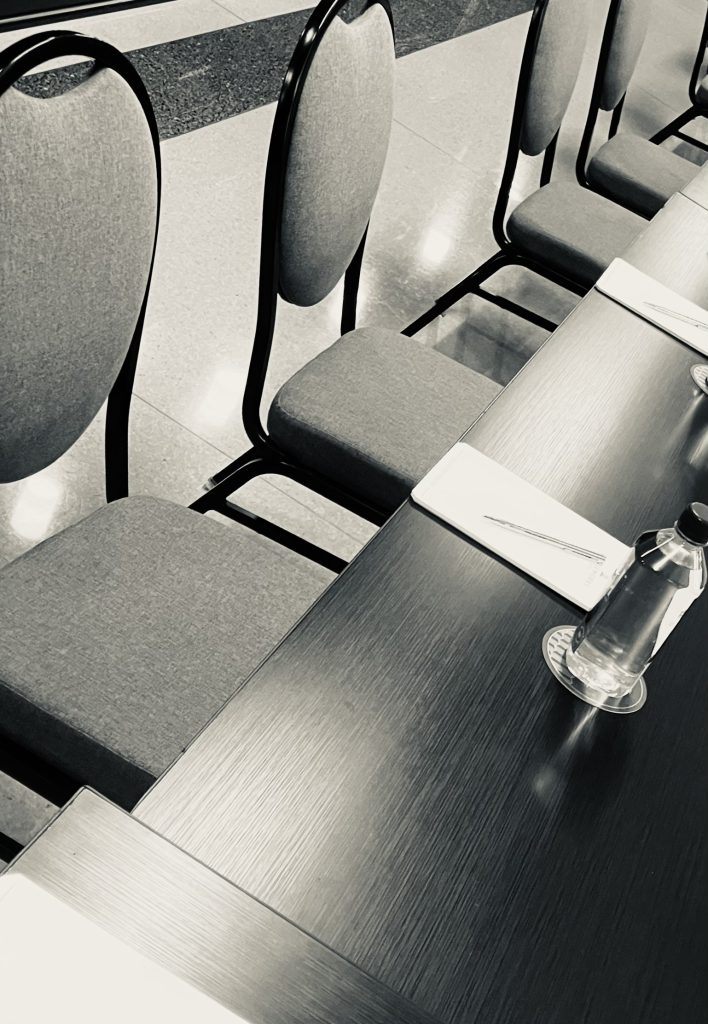Learning to Lean into Difficult Days

Even in hard times, we can create something beautiful
Svetozar Marković, the 19th-century Serbian philosopher whose 1846 birth we’ll mark next week, spent his short life pushing for an independent Serbia. While the Civil War was raging here in the U.S., Marković was fighting for freedom across the ocean. A vocal advocate for alternatives to royal rule and hierarchical thinking, he promoted community-centered models of governance—not wholly unlike what we strive for here in the Zingerman’s Community of Businesses (ZCoB) today. Though Marković’s name won’t ring familiar for most Americans, in Serbia, he’s a historical star. He holds a prominent place on the modern list of the 100 most influential people in the nation’s history and continues to inspire today’s student-led democratic movements. In 1975, a postage stamp was issued in his honor, and five years later, a feature film told the story of his life.
In 1874, at just 27 years old, Marković was arrested after publishing writings that challenged royal rule. His trial quickly became a rallying point for the Serbian resistance, with local peasants reportedly packing the courtroom. Convicted of “defaming the prince,” he was sentenced to nine months in prison. While there, his tuberculosis worsened, and not long after his release, he died of the disease in the then Austro-Hungarian town of Trieste. He was only 28.
Marković was also an important literary critic, regularly advocating the belief that writing could play a meaningful role in helping to make the world a better place. He believed that, at its best, published work should be practical—something people could use to help them grapple with the difficult issues of their day. Given the challenges of the times we’re living through, my hope is that what follows might do a bit of the same: offer some framing and insight that can help caring leaders—whether here in southeast Michigan, in Manitoba, in Mongolia, or in Marković’s homeland of Serbia—be more effective in facing the array of challenges that regularly appear before them.
In his later years, Marković reflected that “true wisdom is not in knowing everything, but in understanding what truly matters.” One piece of wisdom I’ve come to see—all too clearly from my own experience over these many years in business—is that the leaders and organizations who do well over the long haul are almost always remarkably good at working through hard times. They may not enjoy them, but they learn to handle the difficulties at hand without decompensating. As author, translator, and teacher Ilan Stavans says, “What is important is not what happens but what people make of it.”
Alongside all these inevitable challenges, there are plenty of inspiring moments too. Just last week, I had the chance to teach at a ZingTrain Community Event in Boston at which I shared learnings about “Managing Ourselves” with 60 or so very engaged attendees. Thanks to everyone at Oleana, Sofra, Boston University, and my friends Ana Sortun and Sara Febroth for making it all happen! And, as this enews goes out, we’ll also be celebrating the newest inductees into the Zingerman’s Service Hall of Fame that I wrote about a few weeks back.
After an inspiring week in Boston, my focus now shifts to the keynote I’ll be delivering the day after Svetozar Marković’s September 9th birthday. I’ll be heading to Dallas to open the Great Game of Business open-book management conference. The topic for my talk—“A Revolution of Dignity in the Twenty-First Century Workplace”—is a subject that feels increasingly close to my heart with each passing day.
Part of the answer, I’ll suggest, is how we approach those times. Per the self-fulfilling belief cycle I wrote about in The Power of Beliefs in Business, what we believe about tough times has a big impact on how tough it is to get through them. If we believe that difficult challenges are an unfortunate aberration, that there’s something wrong with the world when they happen, that we have unfairly become helpless victims of other people’s failures, then periods of great difficulty and high uncertainty—like the one we’re in nationally right now—can be nearly impossible to overcome.
Those, of course, are not the beliefs we’ve been working with here at Zingerman’s for the last 43 years—if they were, we’d never have made it nearly this far. To the contrary, the beliefs I’ll be sharing as an entrée into my Dallas talk are strongly held, positive approaches to challenging situations:
- Tough times are the norm, not the exception. In other words, like them or not, they happen a lot!
- Dignity is a reliable guide. No matter how tough the situation, dignity can only help. To paraphrase one of my business partner Paul Saginaw’s favorite sayings on generosity: “Dignity is never out of season.”
- Proactive approaches matter. There are many ways we can remain effective in the face of adversity and uncertainty.
- Pause and ground yourself. No matter the challenge, it’s almost always wise to take a few seconds, breathe deeply, and get grounded before acting.
Having practiced these approaches for over 40 years, I can say with certainty that they hold true not just for those of us in the food world, but in life more broadly—and even, for that matter, in football. I usually shy away from sports analogies, but this one is too accurate to ignore. Writing in The Athletic this past weekend about second-year Bears quarterback Caleb Williams and his early career struggles, Dan Wiederer commented,
A significant part of the Bears’ evaluation of Williams this season will center on his ability to respond to rough plays, shaky series and frustrating moments. … As general manager Ryan Poles called it, “When bad things happen, it’s showing the ability to recover again.”
It’s easy, of course, to critique a highly paid quarterback in a profession many watch but few ever play. But the standard the Bears are applying to Caleb Williams holds true for the rest of us as well. When bad things happen, we need to show that we can recover well—and do it with grace. Difficult days inevitably abound. We can’t prevent them, but we can learn how to get better at handling them.
How we respond to challenges is shaped in part by what we learned in our families. It’s also, it turns out, impacted in part by when we were born. A few years ago, finance expert Morgan Housel wrote a marvelous little book called The Psychology of Money. Among its many insights, one especially struck me: when we grow up almost always has a profound impact on what we believe about money. Looking back, I realize I could have seen this sooner—I wrote in The Power of Beliefs in Business about how our beliefs are formed. But this, really, is why I read: to learn from others. Housel’s perspective helped me a lot. Using inflation as an example, he writes,
If you were born in 1960s America, inflation during your teens and 20s—your young, impressionable years when you’re developing a base of knowledge about how the economy works—sent prices up more than threefold. That’s a lot. You remember gas lines and getting paychecks that stretched noticeably less far than the ones before them. But if you were born in 1990, inflation has been so low for your whole life that it’s probably never crossed your mind.
No one should expect members of these groups to go through the rest of their lives thinking the same thing about inflation. Or the stock market. Or unemployment. Or money in general. No one should expect them to respond to financial information the same way. No one should assume they are influenced by the same incentives.
I want to say much the same about our relationship to handling difficult, uncertain times. If you went into business during a period of relative social and economic calm, it would make sense to believe that calm was the norm. That belief can make it harder to navigate when trouble comes. It tends to catch people who aren’t accustomed to it off guard. Folks often grow frustrated, lose confidence, point fingers—first at others, then at themselves.
By contrast, people who grew up in hard times tend to see prosperity as the exception. They may enjoy it, but they never count on it lasting. They assume the next crisis is just around the corner. In a sense, that’s Zingerman’s. When we opened the Deli in 1982, inflation rates were approaching 18%. Unemployment was high, especially here in Michigan. The Cold War was still going strong. Since then, we’ve seen three recessions, 9/11, a stock market collapse, January 6th, and a pandemic. Calm is not the norm. The belief that hard times are pretty common is pretty common around the ZCoB—and probably hence embedded into the essence of our organization. Not in a foreboding way. We feel incredibly fortunate and work at appreciation and joy every day. It just means that we assume hard times will come—they’re just another obstacle to work around, not a sign of impending doom. A reminder to take a deep breath, get grounded, and get to work on figuring out what we will do.
My friend Kate Mueller in Maine is still dealing with the sadness of having her pup pass away this past spring. Kate, whose life was centered around her incredibly athletic, endurance trail walking skills, came down with Long Covid early in the pandemic. She has pushed through and found ways to remake her life. Part of that seems to be reframing her belief around the challenges she faces:
“Normal” life is a rollercoaster. Things are always falling apart and coming back together, then falling apart again. Stuff breaks. We get stressed, we get anxious, we get depressed.
Trying to define “normal” as somehow absent of those things has this implicit effect of making us feel bad for not being “normal.” And if your situation is turning out to be more chronic and long-lasting—like long Covid, for example—it makes you feel like you will never be “normal” again. No bueno.
Learning to handle difficulties well can lead to remarkably positive outcomes. Thinkers as different as Supreme Court Justice Louis Brandeis—“If you would only recognize that life is hard, things would be so much easier for you”—and the anarchic Beat poet Charles Bukowski—“What matters most is how well you walk through the fire”—have voiced this truth. More recently, historian Robin D.G. Kelley added his own perspective: “Love and study cannot exist without struggle.”
In “Bottom Line Change,” I wrote about my realization that we, and most organizations, had been working with the belief that change was an aberration, something to “get through.” My belated glimpse of the obvious was that change was actually the norm, and the sooner we embraced that reality and began to work to get good at change, the healthier our organization would be and the better we would do. It worked. Making the five-step Bottom-Line Change® recipe part of our normal routine has made us a calmer and more effective business.
As I’m suggesting here, the same is true for difficult times. I don’t love them any more than I love change (which isn’t much), but I’ve worked to get good at dealing with them. Like it or not, they’re part of what we all live with. In just the past few weeks, a friend had to put down her beloved dog, another lost a brother-in-law unexpectedly, and yet another still saw their brother-in-law go through a tough surgery. Here in our organization, people we thought would be with us for years have decided suddenly to leave, while others who left some time ago want to come back when we don’t necessarily have a spot. I’ve also been dealing with my own health issues this summer (I’ll be okay!). And all of us, like the folks I’ll be speaking to at the Great Game of Business conference in Dallas, are carrying the weight of the larger world—economic uncertainty, the low-grade anxiety so many feel, the ripple effects of customers suddenly losing jobs or Federal funds. None of it is easy. But it’s not going away either. The key, I’ve come to believe, is getting good at dealing with it.
This is certainly true for any of us advocating democracy and dignity. The erosion of the rule of law and due process, paired with increasingly authoritarian activity from those in power, is raising stress levels across the board. According to the non-profit Freedom House, only about 20% of the world’s population now lives under democratic constructs—a figure that declined again this past year, marking the 17th consecutive annual drop.
We clearly have our work cut out for us. Difficult days are at hand. In the spirit of what I wrote last week about free choice, rather than retreating, I willingly choose the path of resistance. It will be more difficult, but as I’ve written, I believe democracy matters. In his 2010 book In the Absence of God: Dwelling in the Presence of the Sacred, philosopher Sam Keen—who passed away this past spring—writes,
The men and women who made an enduring mark on history, for better and for worse, ignored the accepted worldviews, values and myths of their time and chose to pursue their own answers to their deepest questions.
This is certainly what Svetozar Marković was doing in Serbia in the 19th century and what I believe we are working hard, ever imperfectly, to make happen here in the ZCoB.
The normalness of dealing with difficulty was summed up beautifully by M. Scott Peck many years ago in his best-selling 1978 tome, The Road Less Traveled:
Life is difficult.
This is a great truth, one of the greatest truths. It is a great truth because once we truly see this truth, we transcend it. Once we truly know that life is difficult—once we truly understand and accept it—then life is no longer difficult. Because once it is accepted, the fact that life is difficult no longer matters.
Most do not fully see this truth that life is difficult. Instead, they moan more or less incessantly, noisily or subtly, about the enormity of their problems, their burdens, and their difficulties as if life were generally easy, as if life should be easy.
The hard road, it turns out then, is not really less traveled. At least not at its entrance—we all, after all, struggle. What is far less trafficked, though, is the part of the road on which people have successfully seen their struggles through.
So, what do we do when we find ourselves confronted with hard stuff? Here are some techniques that, when we practice them regularly and implement them effectively, can help us confront the inevitable challenges that are going to come our way:
- Stay centered. As historian Timothy Snyder writes in his terrific little book, On Tyranny, “Be calm when the unthinkable arrives.” Whatever ways one has to stay centered can really help a lot. They won’t fix the problem, but they can put us in a better position to do so. Journaling, running, writing, walking in nature, reading, making art, talking to friends, and more can all help.
- Revisit your vision. Or if you don’t yet have one, write one. Yes, it may feel difficult to do under duress, but—having written many hundreds—take my word for it, it’s eminently doable. After all, if we don’t know where we’re going, it’s hard to deal effectively with day-to-day difficulties, which can quickly leave us feeling lost.
- Check your values and guiding principles. Working within the framework of our values, our philosophy helps us to stay focused on responding in ways that are aligned with our ethics. Problems will still be present, but regret is reduced, getting to good outcomes is more likely, and we will feel better about what we’re doing.
- Get help. University of Michigan Business School professor Wayne Baker’s All You Have to Do is Ask is a great guide to learning why and how getting help is such a positive way to go. Very often, people we know—or people that people we know know—are actually able to assist us with our challenges far more than we might at first imagine. We’ll never know, though, unless we ask! In her great book, The Black Working Class, historian Blair Kelley writes about the washerwomen who organized themselves in Mississippi in 1865 for the betterment of the group. These women—all of whom were still enslaved even a few years prior—created an effective effort at collective action. Kelley writes, “They cannot change the overall circumstances and difficulties they’re facing, but they can support one another and set boundaries and limits and build community out of the struggle.”
- Make sure the difficulties you’re dealing with are the ones you want. Natural Law #9 is that success gets you better problems. In Managing Ourselves, one of the top tips I share is: “Be ready to embrace the uncomfortable.” Dealing with duress and hard times is hard. But it becomes self-defeating if what’s hard is working at work you don’t believe in, with people you don’t like working with, etc. By contrast, taking on the challenge of working hard in hard times to advocate and actualize deeply held beliefs remains difficult, but it is a difficulty we choose to deal with because we believe in where we’re going. It’s a huge difference. This is the crux of what I will say in Dallas next month about dignity.
- Talk to others about what you’re struggling with. Far too many people, living with the belief that a life filled with challenges is a failure, fail to share their struggles. Which just further deepens the roots of the belief that a life well lived will be wonderfully, exclusively full of puppies and rainbows. What happens is a bit of what Ukrainian poet and musician Serhiy Zhadan writes:You will never write about
how it all really was.
You won’t dare, you’ll keep it to yourself,
put it aside, keep it in the dark.Nearly every time I share my struggles with others, I find that their problems are surprisingly parallel to mine. Talking together won’t make the issues at hand go away, but it does seem to consistently reduce both my own stress and theirs. - Share stories of struggle in the organization. If the only stories folks we work with hear are of either big, easy success or total collapse, they fail to understand that most progress happens only while working through adversity. It matters that we also share our failures, so staff know we’re not hiding the hard parts and can trust that we act with integrity. Per what I wrote about resistance a few months back: when Bobby Flam decided to integrate his restaurant Jumbos in Miami in 1968, half his staff quit the next day, and a number of customers stopped coming. He stayed the course, living his values rather than going with the flow. Kudos! Similarly, when I teach our organizational history, I regularly share that most of our long-term visions have come only after working hard to come to a consensus after any number of uncomfortable conversations. The authenticity and self-awareness that Ji Hye Kim, long-time chef and partner at Miss Kim, shared in last week’s enews have taken her years to develop. And I repeat regularly: Natural Law #11—It takes a lot longer to make something great happen than most people think. And Natural Law #7—Successful businesses do the things that others know they should do … but generally don’t.
- Make art! Artistic expression remains one of the best ways I know to get emotional clarity and to share our pain and our positive messages. Eighteenth-century French painter Jean-Baptiste-Simeon Chardin pointed out, “He who has not felt the difficulties of his art does nothing that counts.” In our own era, poet Jane Hirshfield writes:Difficulty itself may be a path toward concentration … The work of writing brings replenishment even to the writer dealing with painful subjects or working out formal problems, and there are times when suffering’s only open path is through an immersion in what is.Both Svetozar Marković and I, like Hirshfield, rely on writing, but poetry, painting, poster-making, music, sculpture, collage so many other methods of creative expression can help to both calm one’s soul and share stress at the same time. Poet Charles Bukowski writes,what can I do?
it’s true:
pain and suffering helps to
create what we call art. - Find the joy! In the metaphorical organizational ecosystem model, joy is the butterfly. Healthy ecosystems attract butterflies. Noticing them takes attention—even in the toughest of times, I’ve found that there is still an abundance of joy there for me to benefit from. Mostly, it just takes paying attention! On down days, joy can boost a mood.
- Stay hopeful. Per what I wrote a few weeks ago, if we lose hope, things will not go well.
None of these techniques will guarantee that we can get through hard times without hardship, but all will certainly increase the odds of coming out on the other side in reasonably good shape.
Through four decades of doing business at Zingerman’s, I still can’t say I like dealing with difficult situations, but I do believe we can—and will—get through them successfully. When we do, the odds are high that our already good relationships will have grown stronger, even if only briefly before the next set of challenges arrives.
With each difficult period we navigate, we learn more to help us through the next. And, per the old Serbian folk saying,
Sve se može što se hoće. Ko hoće nađe način:
When you really want to do something, you will find a way to do it.
Hold strong, breathe deep, don’t get too down, dig into dignity, reach out for help, and let me know what you learn.
As always, we’re all in this together!



